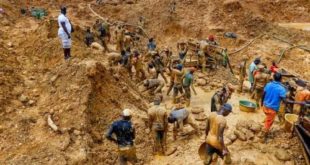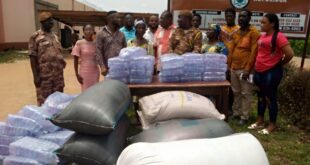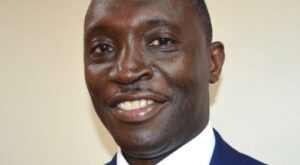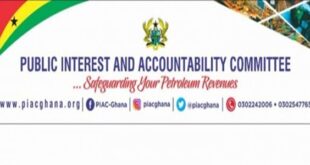IT is estimated that close to 70,000 landowners have been displaced by activities of multinational mining companies, Associate Executive Director of Wacam, Mr. Daniel Owusu-Koranteng, has disclosed.
According to Mr. Owusu-Koranteng, with the loss of livelihood some of the displaced people, especially the youth who do not have the skills required for permanent employment in mining companies, will be compelled to undertake employment in illegal gold mining activities.
He noted that in the quest to sustain their livelihood, illegal gold mining operators have declaimed large tracts of forest cover, agricultural lands and water bodies.
The associate executive director of Wacam noted that the introduction of gold mining in farming communities has worsened the unemployment situation in mining communities. That development, he said, has left in its wake farmers abandoning their farms to undertake mining activities, with its attendant environmental problems, especially pollution of rivers.
Mr. Owusu-Koranteng, who made this known at a stakeholders’ forum on illegal mining, organised by Citi FM and Wacam, a non-governmental organisation engaged in advocacy in mining communities on the theme: “Mobilising national efforts for responsible mining,” stressed that the country will be doomed, if government continued to allow illegal gold mining activities in the country.
Mr. Owusu-Koranteng, therefore, stressed the need for the government to extend the moratorium on gold mining activities in Ghana forever.
“Sadly, Section 17 of the Minerals and Mining Act, Act 703 of 2003, grants that a mineral right holder upon receiving requisite approvals or licences under the Water Resources Commission Act, 1996 (Act 552), may, for the purposes of or ancillary to the mineral operations, obtain, divert, impound, convey and use water from a river, stream, underground reservoir or watercourse within the land the subject of the mineral right,” he added.
This, he maintained, has been the cause of water pollution and destruction by gold mining operations of mining companies.
“We do not have adequate provisions in the Minerals and Mining Act to protect water bodies and to hold the mining companies to strong environmental standards based on the Polluter Pays Principle (PPP),” he indicated.
Mr. Owusu-Koranteng noted that the country’s mineral laws require that companies that violate the Minerals and Mining Act must pay a fine of not more than the cedi equivalent of $US 5,000 and further permit that if a defaulting company is unable to pay the penalty, it must be treated as a civil debt owed to the state.
He pointed out that the penalty as provided in the Minerals and Mining Act, Act 703, 2006 (section 108 and 109) does not prescribe strong provisions to hold mining companies to clean up cost when a mining company could pay about US$ 100 Million as clean-up cost for cyanide spillages in countries with strong environmental laws .
“As a nation, he wondered why the government had permitted official mining lease for mining in the Ajenua Bepo Forest reserve when we know that the Ajenua forest reserve protects about 12 rivers including Afosu River and other rivers such as Yaayaa, Alotosu, Adenkyem, Aboabo, Adentem, Akrawasu among others,” Mr. Owusu-Koranteng said.
He revealed that gold mining operations of multinational mining companies have the death knell to these rivers that were of importance to the people in the area.
This, he said, amounts to lawlessness on the part of the state to strip the forest reserves of its protection.
According to him, water pollution has become a systemic human rights violation in Ghana.
He pointed out that the baseline study revealed that out of the 156 streams/rivers in Obuasi mining area, 145 rivers are polluted by operations of mining companies and “galamsey” operators.
Similarly, he disclosed that all the 114 rivers/streams in the Tarkwa mining area are polluted by gold mining companies and illegal mining operators.
He lamented that most of the alternate sources of water provided for residents of mining communities by mining companies were not of good quality.
The extensive damage to river bodies alone in the third gold rush, he maintained, was an indication of the country’s inability to compute the cost of mining which outweighs the benefits gained from mining.
He called for a comprehensive look at the country’s laws, policies, benefits and costs through a national consultative forum.
“Large scale mining by foreign companies has high import content and produces only modest amounts of net foreign exchange for Ghana after accounting for all its outflows. Similarly, its corporate tax payments are low due to various fiscal incentives necessary to attract and retain foreign investors. Employment creation is also modest given the highly capital intensive nature of modern surface mining techniques.
“Local communities affected by large scale mining have seen little benefits to date in the form of improved infrastructure or services provision because much of the rents from mining are used to finance recurrent, not capital expenditure.
For the way forward, he suggested the government places a moratorium on the granting of gold mining lease to mining companies for the country to undertake a cost-benefit analysis which would consider the full cost of mining including social, environmental and economic costs of mining as against the benefits.
“The legal solution should be combined with sensitisation, alternative livelihood and skill development programmes to equip the host communities that had lost their lands to mining with incomes that could restore livelihoods,” he said.
The state, he maintained, should also be prepared to make substantial investment in the alternative livelihood programme which can attract and sustain mining communities that had been exposed to the “cash economy of galamsey.”
He further called on the government to invest in environmental education, especially among the youth and students in mining communities, in order to gain their support in all programmes to address the galamsey problem.
Source:todaygh.com
 Radio1Ghana Serving Communities
Radio1Ghana Serving Communities










